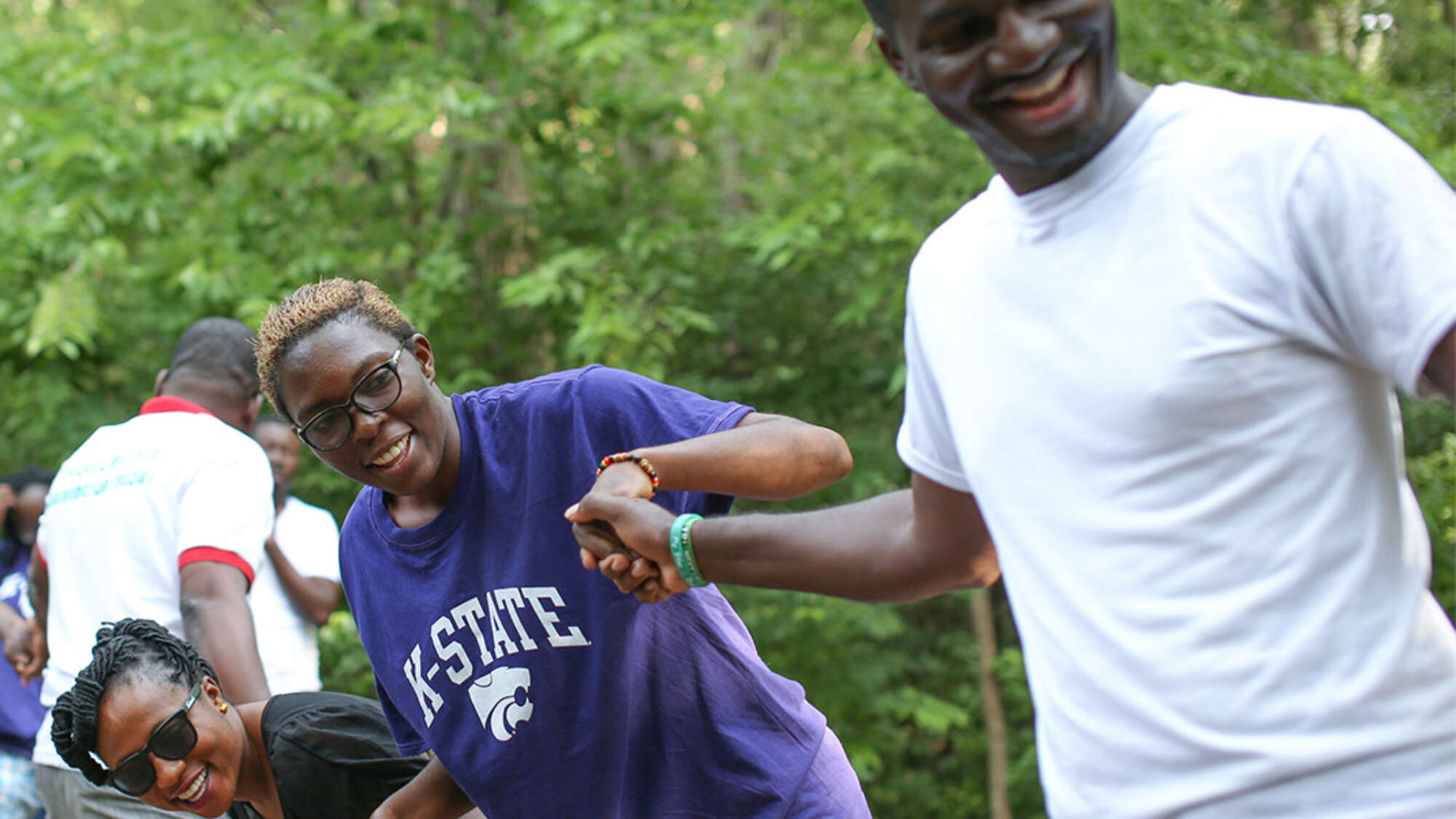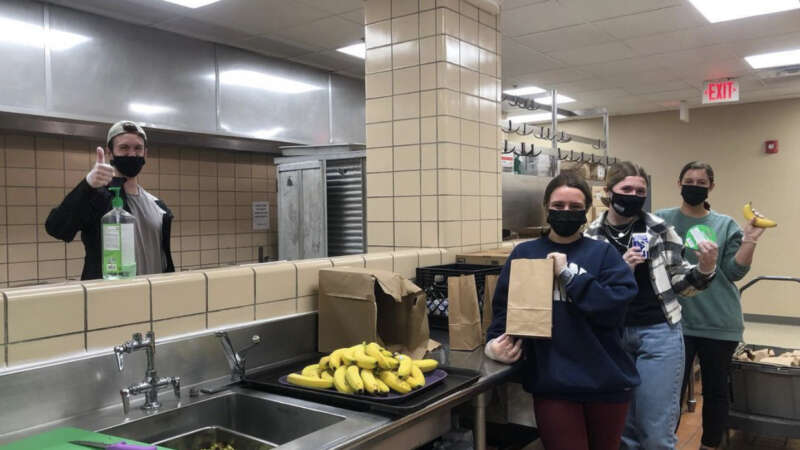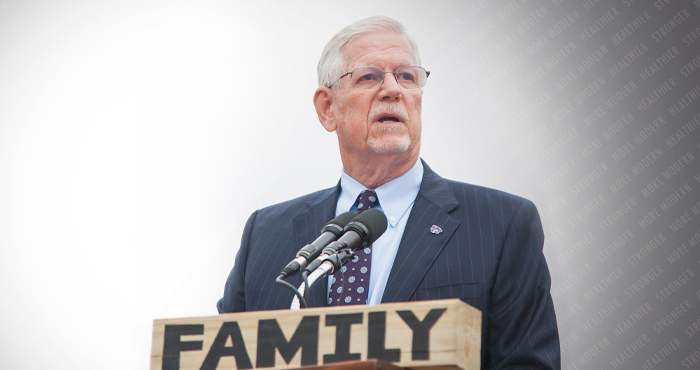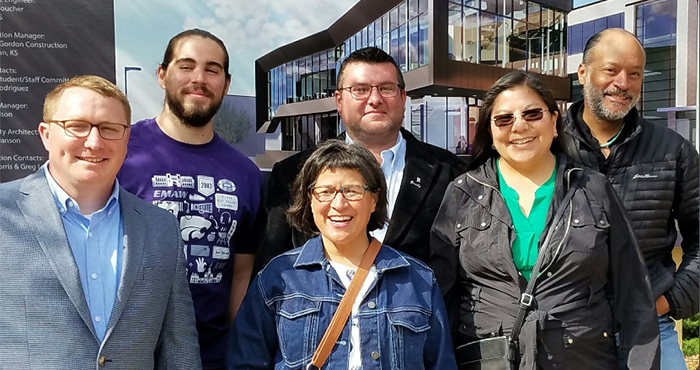K-State is among an elite group of institutions selected to host Young African Leaders Initiative through the Mandela Washington Fellowship program
The K-State family is growing globally more than ever before, especially in sub-Saharan Africa. In the summer of 2016, the Staley School of Leadership Studies, in partnership with the Office of International Programs, hosted 24 of Africa’s brightest emerging civic leaders for a six-week academic and leadership institute. Out of 40,000-plus applicants, these young leaders were among 1,000 selected to receive the Mandela Washington Fellowship, the flagship program of the Young African Leaders Initiative (YALI). They were chosen because of their accomplishments in promoting innovation and positive change in their organizations, institutions, communities and countries. K-State was one of a select group of institutions who hosted fellows in 2016 and has been selected to host another group of fellows this summer.

K-State connections in Africa
The K-State summer program that the Mandela Washington Fellows participated in is part of the Leading Change Institutes, hosted and organized by the Staley School of Leadership Studies. YALI is a federally-funded program and selection as a host institution requires filling out a competitive grant application and guaranteeing matching funds.
“In this environment, there is no way we could have even proposed applying for this program if we didn’t already have the support of the Leading Change Institutes endowment,” said Mary Tolar, director of the Staley School of Leadership Studies. “That funding allows us to meet the match requirements. We needed outright dollars to match, and we had that because of Dave and Ellie Everitt and their support of the Leading Change Institutes.”
The Mandela Washington Fellows came to K-State to learn and network with their counterparts from other African countries, but K-State also benefits from having hosted them.
- A K-State International Service Team is going to The Gambia this summer to work with one of last year’s fellows on ecosystems including work with sea turtles.
- Staley School of Leadership Studies professor Dr. Brandon W. Kliewer will join Beth Ndiranju, a 2016 Fellow to work on disability rights.
- Staley School of Leadership Studies professor Dr. Mike Finnegan is going to Guinea to partner with 2016 fellow Abdoul Salam Diallo who works to improve community health and schools and has a translation business. Finnegan will also be conducting StrengthsQuest activities while there.
- The Staley School and Kansas State Women’s Soccer program are exploring partnership opportunities with Faty Kane, a 2016 Senegalese fellow who works with Ladies’ Turn, a program that strives to empower women through soccer.
- Two past fellows from Kenya (Beth Ndirangu) and Zambia (Stu Wambulawae) returned to K-State in November 2016 to speak about disability rights, a field they both work on in their home countries.
- Fellows have also video conferenced into classrooms, provided insight to students on current issues abroad, and continue to stay in contact with faculty and staff from K-State along with members of the Manhattan community.
- Two fellows from 2016 are returning to K-State to help with the 2017 institute.

Learning and leading across cultures
The Mandela Washington Fellows hosted by K-State come from wildly different backgrounds and the issues they work on include youth development, gender rights, labor rights, disability rights, access to healthcare, leadership development and teaching people how to organize and advocate around civic issues.
Theresa Morfaw from Bamenda, Cameroon, looked forward to learning about the various dimensions of leadership and to take what she learned back home and put it to use. Theresa is the co-founder of Ntankah Village Women CIG and founder of Youth for Change and Empowerment. She advocates for young people’s access to sexual and reproductive health and works to empower diverse youth.
“Culture and diversity training made me realize that no matter how different we are, there is always a common value we all share. I think that is really going to help me in my work,” Theresa said. “The first thing I plan to do when I go back is introduce these ideas to my organization and to all the young people I’m working with via health clubs in various schools. I’m starting at the base and working up. The first thing is education. I believe a bottom up approach is the best way Africa can develop itself, and I’m bringing my sisters and brothers from the grassroots up to be who they are and can be.”
Adedayo (Dayo) Adeniyi from Osogbo, Nigeria, says there’s power in connecting with colleagues from other African countries. “I’ve taken time to engage the other fellows on what they do, the strategies they employ in their various countries, because to me, I believe we gain a lot from that angle,” he said. “I believe one of the key things of this fellowship program is relationship building — how we’re going to leverage our connections and tap into others’ wealth of knowledge — that’s been awesome for me.”
Dayo is the executive director of Matadors Leadership Institute, where he is committed to developing and teaching leadership as a service to society. He also volunteers at a local orphanage where he teaches vocational and life skills.
Fueling advancements
“Leadership is a thing that is talked about a lot but not very well understood. Leadership is the one single item, I believe, that has the most impact for making change,” said Dave Everitt.
Dave and Ellie Everitt, both K-State graduates, fund the endowment that enabled the Staley School of Leadership Studies to initiate the Leading Change Institutes. The institute brings together influential leaders to diagnose and address pressing and complex local and global challenges. The Everitts felt the institute was an important way to have a positive impact.
“Let’s help support the next generation that will be dealing with a lot of issues in government, public policy, private industry and see if we can help make the process work better,” Dave said. “Supporting this initiative was about helping the university have a positive influence on individuals who are going to have an impact on all of us long term. This is about building the capability for societal infrastructure to move forward.”
Learn more about the Mandela Washington Fellows’ experience at K-State and the Leading Change Institutes. To support the Leading Change Institutes, please contact Heather Strafuss at 785-775-2146 or heathers@ksufoundation.org.




